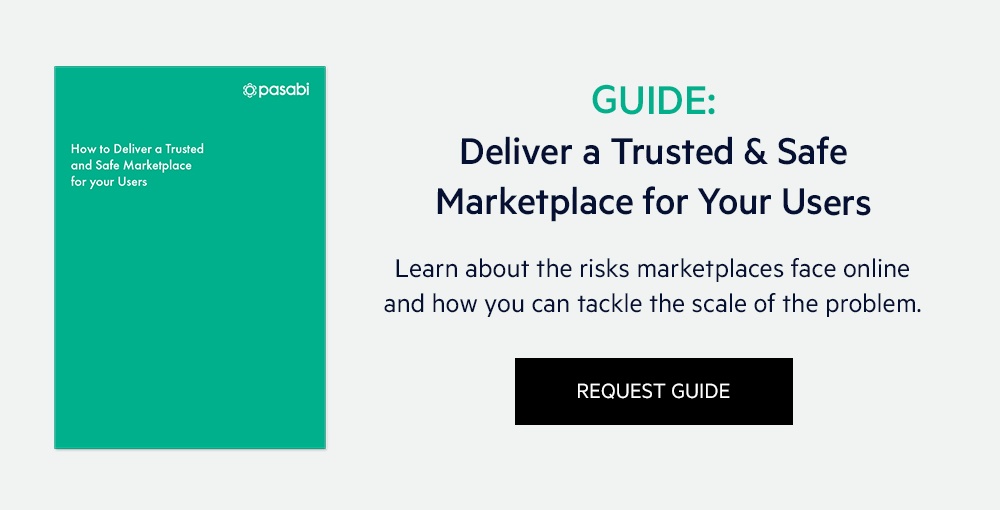‘The currency of the new economy is trust.’ Rachel Botsman, Trust Expert & Author
Fifteen years ago, who would have imagined the potential of sharing economy platforms? From ride-sharing to holiday letting, from jewellery hire to clothing rental, innovative collaborative platforms have been enjoying unforeseen success. And as a relatively young sector, there is still plenty of scope for further development … so long as you maintain users’ trust.
Why is trust so important?
Trust facilitates risk and makes people feel safe. Without trust, Airbnb would have no guests and Uber would have no passengers. The first time users bought from sites like eBay, they trusted the transaction was genuine and would be fulfilled. They were making, what Trust Expert Rachel Botsman has coined, a ‘trust leap’ - taking a risk to do something differently to how they’d done it before.
Sharing economy platforms have been borne out of this concept and have created a market for assets that previously never had a marketplace. Vacant accommodation, empty parking spaces and unoccupied seats in cars on long-distance journeys can now be traded in digital marketplaces. Trust has become the currency of these interactions. But how can you safeguard the trust and safety of your users during times of unprecedented growth?
Balancing growth and friction
The lure of success and enthusiasm of entrepreneurs can sometimes result in the creation of easily accessible platforms with few financial or administrative barriers to entry. Users can enjoy a frictionless onboarding experience while platforms see unrivalled numbers of signups. However, this also means fraudsters masked as genuine users are equally easily able to get on your platform. Even with basic verification procedures in place, fraudsters are relentless in finding sophisticated ways to bypass the system. Ongoing monitoring is needed to catch the bad actors slipping through the net.
Platform operators have a responsibility to their users to facilitate trust
Why do Airbnb hosts let unknown people stay in their homes? Why do Uber passengers get into strangers’ cars? The answer is reviews. Reviews bridge the gap between the known and unknown. Sharing economy platforms rely heavily on reviews to create trust between third party sellers and platform users, building trusted reputations. The ability to learn about a business or user’s reputation provides a level of comfort for both parties. However, you need to trust that the reviews are genuine.
Verify review authenticity
In September 2019, a study by Which? revealed that 90% of consumers cite good online reviews as being crucial to making a decision to transact online. A well-written, genuine review clarifies a service offering, fosters credibility and gains users’ trust. Acting like a form of social proof, it helps remove some uncertainty when transacting online.
Trust underpins the sharing economy; getting it right facilitates growth; getting it wrong means potentially failing. So, if users can’t trust the reviews on your platform, how can they trust the service you’re offering?
Spotting fake reviews
Fake reviews take several forms - positively biased (where employees, family, friends or genuine users are incentivized to write favourable reviews), negatively biased (either a rival looking to negatively impact a profile or a user looking to blackmail for their own benefit) and ‘paid for’ reviews (reviews purchased from review selling businesses to ‘game’ the reviews system).
As a collaborative platform promoting the services of users, you will want to help protect your customers from such nefarious activity. Neglecting to do so could cost you your success. The tell-tale signs of fake reviews can be relatively easy to spot - badly worded language, generic comments and clearly biased reviews to name just a few. However, for a platform to tackle this problem, particularly in a period of high growth, it’s not a question of individual quality control, it’s a question of scale.
Technology can help
Thankfully AI technology is available to handle this data challenge and keep up with your platform as you grow. AI handles large volumes of data very efficiently; the ideal solution when you’re looking to scale. Fraudsters leave behind digital fingerprints that technology can spot, shining a light on the bad actors trying to game your platform. So, from insurance scams to fake reviews, you can uncover the unscrupulous individuals and groups exploiting your success and challenging your users’ trust.
Ready to find out more? Check out our guide.


